Everything I Know About Kanji
My life centers around dog hair. That's just what happens with you live with dogs. I was therefore intrigued by this term:
毛嫌い (けぎらい) hair + disliking
Disliking hair?! What do you think that could mean? While you think about it, I'll give you a preview of essay 1850 on 茂 (to grow thickly; be overgrown; bush; clump), which actually includes some sentences about dog hair!
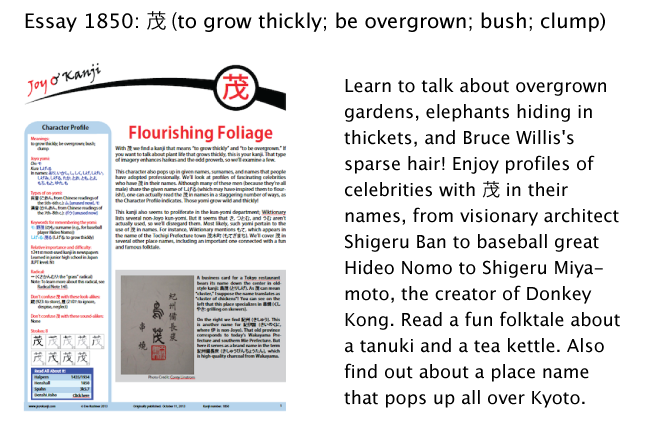
Okay, here's the answer:
毛嫌い (けぎらい: hair + disliking) means "antipathy; prejudice."
Kojien and Daijisen say that this term comes from the way animals like other animals that have good coats of fur (or appealing feathers). Conversely, animals dislike those with bad hair, which I take to mean diseased hair.
The only thing I've been thinking about since yesterday, actually, is dog hair—specifically, the beautiful black hair of my Ria, who left us yesterday quite unexpectedly. She was listless in the morning, but improved enough to take two walks. She couldn't continue with the second one, though, so I left her with strangers downtown and went for the car. I picked her up and whisked her to the vet, who said she was in shock. An X-ray showed a mass in her chest, and this mass must have ruptured, leaving her in shock. But just as they determined this, she stopped breathing. We believe she was 12. She came into our lives exactly 11 years ago and brought us unending happiness.
I don't want to bum you out with this news. I'm plenty bummed out for all of us, so there's no need for you to get on board, as well.
Instead, I want to share with you something I realized as my other dog and I walked around a peaceful lake yesterday evening. I met and adopted Ria just a few weeks after I began learning kanji in 2002. I fell in love with her, and I fell in love with kanji, but I thought those events had nothing to do with each other. (I gave the name Kanji to the dog who came to us in 2006 when I was writing my kanji book. By contrast, I named Ria after a childhood friend with beautiful black hair.)
Anyway, I realized yesterday that Ria had all the qualities a kanji learner needs and may have taught me everything I know about kanji study. Perhaps I can show you best through photos.
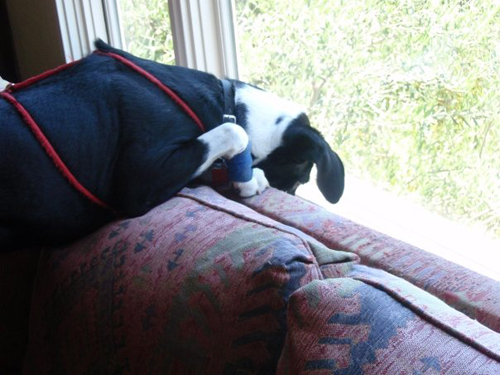
Be curious. When studying kanji, look into every nook and cranny of characters and words. (Ria wasn't actually studying kanji here. A neighbor's cat had sneaked into our house and hidden under the couch. Ria was beside herself.)
Never forget to consider things from two perspectives—namely, the on-yomi and the kun-yomi.
Be flexible, because kanji require you to be versatile as you switch back and forth between yomi. (In later years, Ria often slept with her legs in the air, and when we walked in the room, she would turn to see us, bending her neck in what looked like an impossible position. I took these two pictures just seconds apart; she flipped over as if it were no big deal.)

Go for what you want, and never lose your focus (whether you crave kanji knowledge or my husband's dinner).


Be willing to try unconventional methods. You may be amazed at the results. (Acupuncture helped her enormously.)
Once you find the sweet spot, enjoy yourself thoroughly.
Never lose the capacity to be surprised.
Never lose your playfulness.

Keep your chin up, no matter what.

Support yourself in whatever ways you can.
Stay watchful. Always be on the lookout, and you're sure to notice unexpected things.

Live with your whole heart. Never stop loving kanji. Never stop loving.





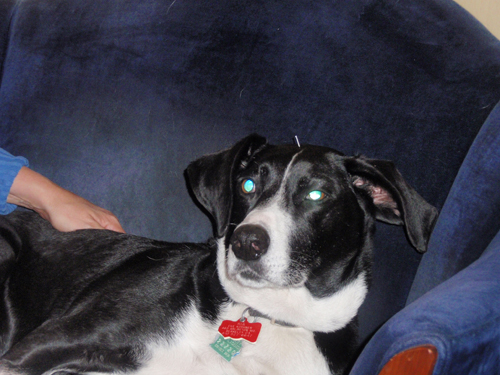
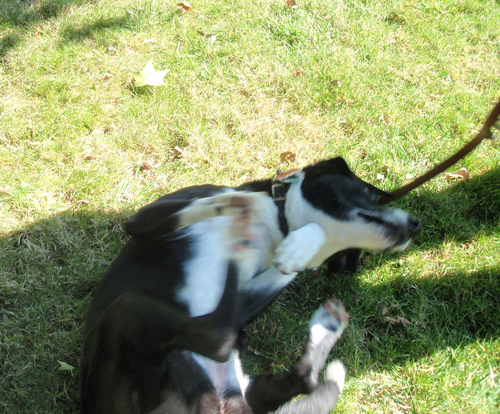
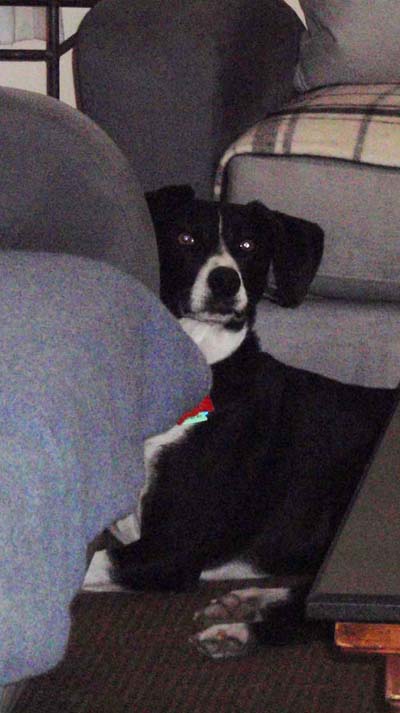

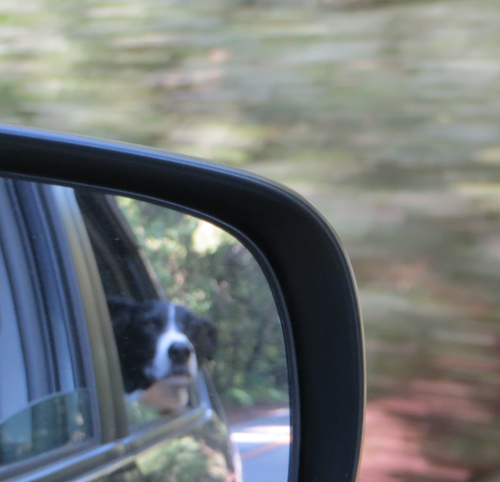
Comments